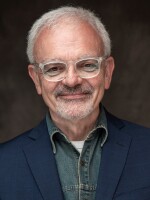RENEE MONTAGNE, host:
This is MORNING EDITION from NPR News. I'm Renee Montagne.
STEVE INSKEEP, host:
And I'm Steve Inskeep. Good morning. President Bush used the fifth anniversary of the 9/11 attacks to say a struggle is just beginning. He defined it as a struggle between tyranny and freedom. The president paid tribute to the victims and heroes of 9/11, and then he moved on to defend his policies since that day. He cited the defeat of the Taliban in Afghanistan as a victory in the war against terrorism, and he again portrayed Iraq as a battleground in the same war.
NPR's Don Gonyea reports from the White House.
DON GONYEA: After a day in which he visited all three sites associated with the tragedy of September 11th - New York City, Shanksville, Pennsylvania, where United flight 93 went down; and the Pentagon -President Bush sat behind his desk in the Oval Office and looked back on the day five years ago when he said the nation saw the face of evil.
President GEORGE W. BUSH: Yet on that awful day we also witnessed something distinctly American: ordinary citizens rising to the occasion and responding with extraordinary acts of courage.
GONYEA: As he has stated many times, Mr. Bush said the U.S. is safer than it was five years ago but not yet safe. He cited steps taken since 9/11: intelligence reform and better communication between the CIA, FBI and other intelligence services, tighter airport, border and port security, and the military missions in Iraq and Afghanistan. In describing the threats the nation still faces, the president said if extremists are not defeated, then one day Americans will face even more serious threats. The president said the country didn't ask for this war and wishes it were over...
President BUSH: So do I. But the war's not over.
GONYEA: He called it a battle for civilization.
President BUSH: If we do not defeat these enemies now, we will leave our children to face a Middle East overrun by terrorist states and radical dictators armed with nuclear weapons. We are in a war that will set the course for this new century and determine the destiny of millions across the world.
GONYEA: It's the same kind of stark language the president and other administration officials used as they were making the case for toppling Saddam Hussein in Iraq as far back as four years ago; although then they said Saddam had weapons of mass destruction and ties to al-Qaida. Last night, Mr. Bush just said the war in Iraq was necessary because of the lessons of 9/11.
President BUSH: I'm often asked why we're in Iraq when Saddam Hussein was not responsible for the 9/11 attacks. The answer is that the regime of Saddam Hussein was a clear threat. My administration, the Congress and the United Nations saw the threat; and after 9/11, Saddam's regime posed a risk that the world could not afford to take.
GONYEA: The president then made an unspecific reference to mistakes that have been made in Iraq, adding that the worst mistake would be to think that if the U.S. pulled out, that the terrorists would leave us alone. He again said that a democratic Iraq will be an example for the rest of the Middle East, predicting the spread of freedom in the region.
Polls show that Americans do not approve of how the president has handled the war in Iraq. Additionally, a recent CBS/New York Times poll says a majority of Americans no longer see Iraq as part of the war on terror, a connection the president has insisted on in speech after speech. That theme was there again last night when Mr. Bush's 17-minute address from the Oval Office included this appeal to a country deeply divided over Iraq:
President BUSH: Our nation has endured trials and we face a difficult road ahead. Winning this war will require the determined efforts of a unified country, and we must put aside our differences and work together to meet the test that history has given us. We will defeat our enemies. We will protect our people. And we will lead the 21st century into a shining age of human liberty.
GONYEA: In advance of the president's remarks, the White House stressed that this would not be a political speech. And there were no calls on Congress to enact new proposals. There was no mention of Republicans or Democrats or the coming midterm elections. But as the president struggles to regain public backing for the Iraq war and to rebuild support for his presidency, the political stakes were too high not to be audible in this speech on 9/11.
Don Gonyea, NPR News, the White House.
INSKEEP: So those are the highlights, and if you'd like to hear the president's entire speech as well as some analysis, you can go to npr.org. Transcript provided by NPR, Copyright NPR.






